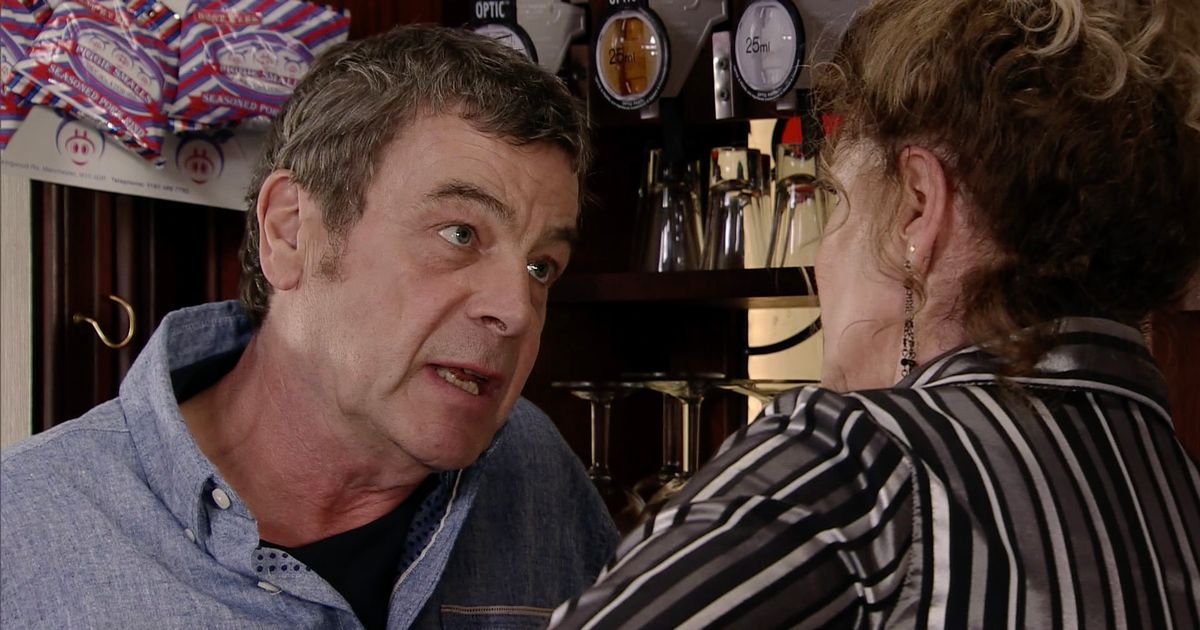Pausing to admire the views as he strolled through the stunning foothills of Ilkley Moor, Coronation Street actor Richard Hawley felt a deep connection with his father.
As a child, Richard had often accompanied his dad Peter on long walks in the famed Yorkshire Dales, and his lone walk this summer for charity was a chance to remember the father he adored, who died in 2004 after a decade-long struggle with dementia.
‘There are so many feelings of loss when you lose a parent, but on this walk it became very personal between me and him, and he felt very present to me,’ says Richard.
‘The sense of loss actually turned into reconnection as I climbed the familiar hills. It made sense to me because I don’t think we ever really lose our loved ones.’
Richard, who plays landlord of the Rovers Return Johnny Connor, was taking part in a Memory Walk for the Alzheimer’s Society.
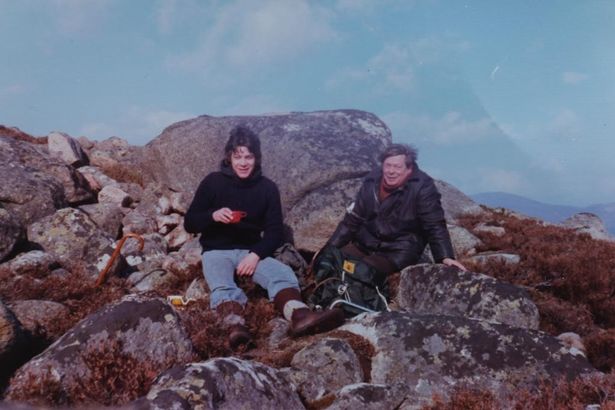
Peter was in his early seventies when he began to develop dementia.
‘He was an amazing man,’ Richard recalls. ‘Although he was a lawyer and very passionate about the law, he was very creative and artistic. He painted a lot and was also a beautiful pianist. He was immensely talented.
‘When I was young I used to wake up to the sound of him playing the piano every day and I’d often drift off to sleep hearing him playing downstairs, which was lovely.
‘He loved painting and would create beautiful naturalistic and abstract pieces.
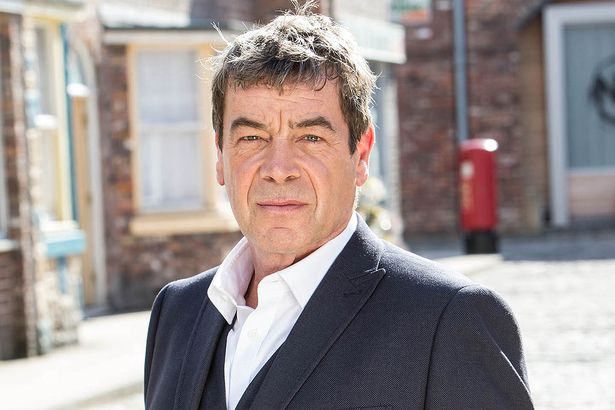
‘But when Alzheimer’s started to show, he began to include lots of black squares in his paintings. At the time we didn’t know why, but later we wondered if that was a sign of the disease.
‘As his dementia took hold he started trying to paint over some of his paintings, which was quite distressing, it felt like the turmoil in his mind was pouring out.’
While his parents remained in West Yorkshire, Richard – who has been in Corrie since 2015, and before then was in C5’s Family Affairs for six years – had moved to Brighton many years before, but often visited his beloved dad.
‘Living 400 miles away, the deterioration was very noticeable whenever I visited,’ admits Richard. ‘It was very hard and there were some upsetting times, but there was a lot of love too.
‘We went on gentle walks together and on lots of holidays. He and Mum would come down to Brighton on the train.
‘We bought him a CD of recordings by Stanley Holloway, who performed humorous monologues and songs. There was one track he found very funny and he would chuckle along to it.
‘We’d play if for him over and over again and he’d find it hilarious every single time.
‘Another strong memory I have is one time when I was strumming gently on the guitar. I noticed Dad’s foot tapping along.
‘He’d stopped playing the piano by then but he got up, walked over to the piano and started to play, riffing along with me.
‘It was a really emotional, intense moment, like the conversation we could never have because of the Alzheimer’s.’
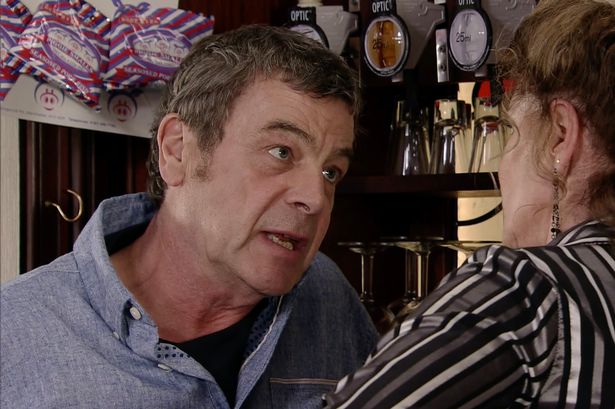
Peter eventually died in 2004 at the age of 82.
‘I was working on another soap when I received the phone call from my mum to say he’d died,’ explains Richard.
‘By then he’d been living with Alzheimer’s for over a decade and my lovely mum had been looking after him for nearly all that time.
‘She was incredible, making sure my dad had as full a life as possible. That’s why I feel so strongly about the role of carers.
‘She was able to do the job of looking after my dad so well because she had support from the Alzheimer’s Society. For instance, there were volunteers who’d read to my dad to give Mum some respite. Things like that were so important.
‘Around 70% of care-home patients have Alzheimer’s and I can’t imagine what it’s been like not being able to go and visit loved ones because of the coronavirus pandemic.’
Following his father’s death, Richard became more involved with supporting the Alzheimer’s Society, helping at fundraising events and sharing his experience.
He makes sure he takes part in the charity’s Memory Walks every year.
‘They’re usually big, inspiring and empowering community events,’ he says.
‘Corrie colleagues, including Dan Brocklebank, who plays vicar Billy Mayhew, have joined me on them too.
‘Lots of the crew have relatives with the disease and you don’t have to look far to see its effects. Alzheimer’s touches so many lives, it doesn’t care whether you’re on the telly.
‘This year, of course, we could only do lone walks or with close family and my decision to do my walk alone really helped me.’
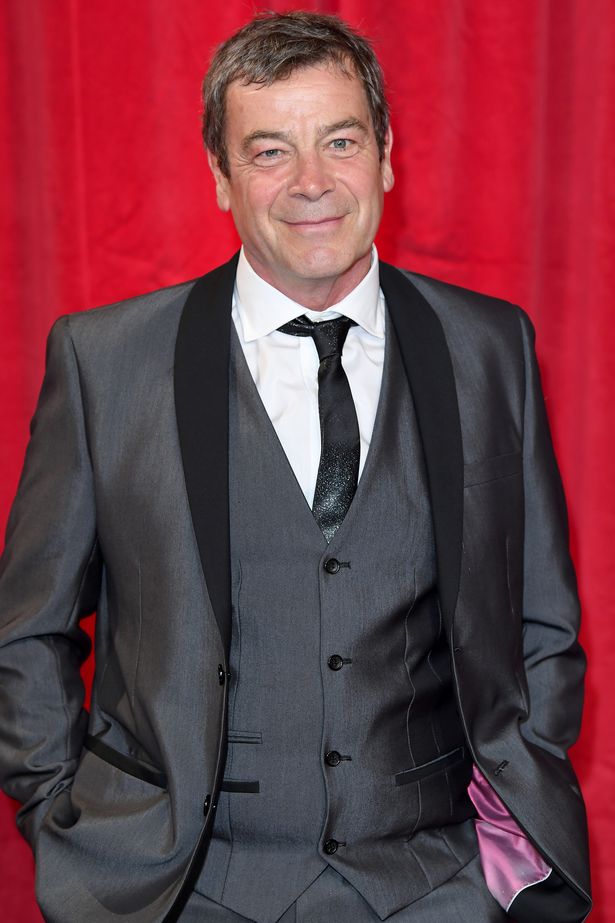
Since returning to work on the famous cobbles, Richard has enjoyed being back with friends in the cast.
‘Lots of new issues keep coming up now that have to be worked around,’ says Richard. ‘There’s always a crew member on set with a two-metre measuring stick to keep us socially distanced.
‘Sometimes it’s tricky but we always have a good laugh about it. It’s great to be back with friends after such a long time apart and we’ve had to find new ways to spend time together.
‘Morale is really high, which is great. And the show is really smashing it too, so that helps.’
Spending weekdays near the soap’s Manchester set, every weekend Richard heads back home to Brighton where he lives with his wife of more than 30 years, Helen, mum to his grown-up twin daughters.
‘I spent the lockdown break from filming in Brighton and I really enjoyed it, especially as I’m not usually home that much,’ he says.
‘One of my daughters lives in Saigon and we had to come home early from a visit to see her because of the lockdown issues over there.
‘This year has been an extraordinary and humbling experience for us all and I think we’ve all realised how much we need each other and need to support each other.’
Richard, who hit the big time with his role as DC Haskons in iconic TV favourite Prime Suspect, has had plenty of meaty storylines to get his teeth into since joining the Coronation Street cast in 2015.
One thing he’s certain of is that his dad would have been delighted by his son’s role on the soap.
‘He was very proud of everything I did as an actor,’ he says. ‘His mum, my grandma, was a life-long Corrie viewer and I know he’d definitely have got a huge kick out of me joining the cast on the Street.’
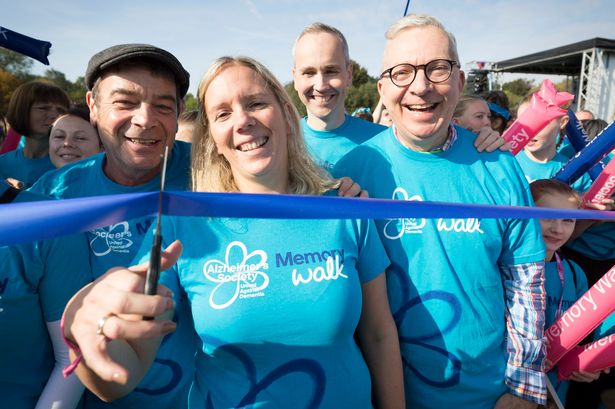
What is Alzheimer’s Disease?
Dementia describes different brain disorders that trigger a loss of brain function. Symptoms include memory loss, confusion and problems with speech and understanding. Dementia is a terminal condition.
Alzheimer’s disease is the most common type of dementia, affecting between 50 and 75% of those diagnosed.Other types of dementia include vascular dementia, affecting up to 20% of those diagnosed, and frontotemporal dementia, affecting 2%.
The shocking numbers that show the scale of dementia in the UK
– Around 85,000 people in the UK are living with dementia.
– 1 in 6 people over the age of 80 have dementia.
– 42,000 people with dementia in the UK are under the age of 65.
– Unpaid carers supporting someone with dementia save the UK economy £13.9 billion a year.
– The total cost of care for people with dementia in the UK is £34.7billion. This is set to rise sharply over the next two decades, to £94.1billion by 2040.
(Figures from the Alzheimer’s Society)
Remember your loved ones and help sufferers with a Memory Walk
Alzheimer’s Society Memory Walks are a great way to walk for a loved one and for a shared goal of a world without dementia. It’s completely free to register and it’s up to you where you walk, from lapping your garden or local park to revisiting somewhere special, as Richard did.
You can complete your walk at any time up until the end of October. Money raised will go towards increasing telephone support via Alzheimer’s Society’s Dementia Connect support line, which has been a lifeline for thousands of people during the coronavirus pandemic.
